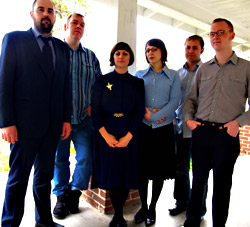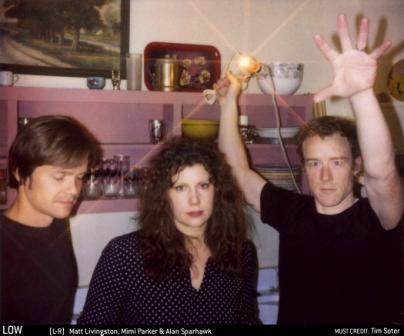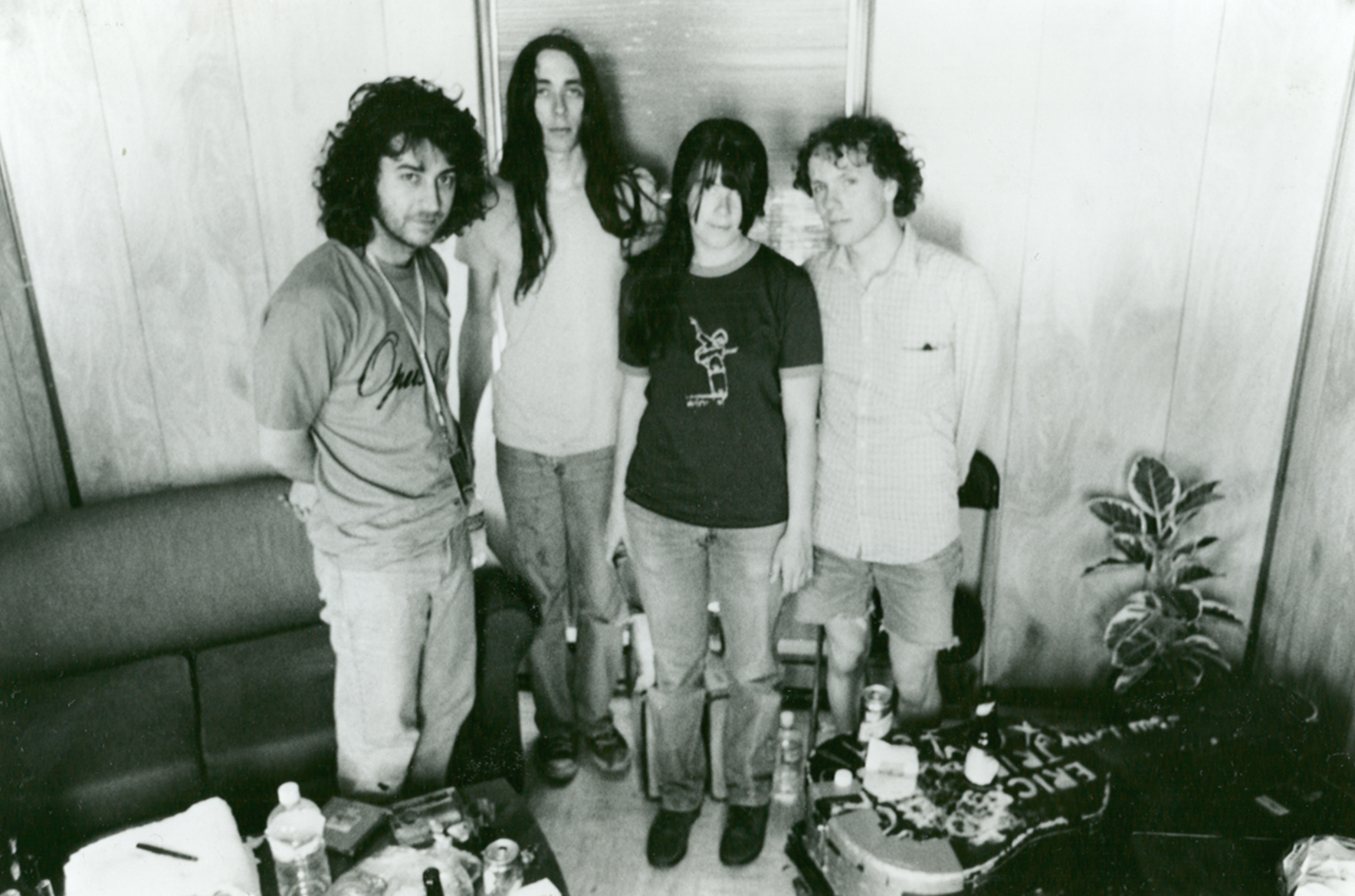Camera Obscura’s biggest, brightest album, Let’s Get Out of This Country, was released last month on Elefant/Merge, and they are about to embark on their most extensive tour yet (hitting all regions of the U.S. and many European festivals). Yet lead vocalist Traceyanne Campbell seems so unhappy.
“I would say that I most certainly am,” Campbell admits, addressing the disparity between her band’s upbeat pop and her eternally melancholy lyrics, which offer insights the soft-spoken singer (understandably) won’t discuss with a stranger on the phone. Like many artists, she speaks through her work, which makes Country‘s statement of “I feel like being confessional” ring true, regardless of the amount of autobiographical detail in each song. Starting with the first single, “Lloyd, I’m Ready to Be Heartbroken,” in which she sings, “I’ve got my life of complication here to sort out,” it’s easy to be simultaneously swept up in the details of Campbell’s suggested woes while being compassionate about your own. 2001’s Biggest, Bluest Hi-Fi dealt with the disappointments of friendship and, occasionally, romance—but whereas she sings “Crestfallen boys are boring” on that album, “The more you look forlorn” is what seems to draw her in on Country.
Country isn’t so much a breakup album as it is an encapsulation of that pain, a simmering, low-level kind that can be devastating nonetheless. It calls to mind the moment in Sixteen Candles when Molly Ringwald’s character is counseled by her father: “Why do you think they call them crushes?” And everyone has felt that heartache.
Recently departed percussionist John Henderson shared vocal duties on the first two Camera Obscura albums; here, Campbell assumes the solo role with a thoughtful tone and personable delivery that saves the material from being labeled twee (although some music fans will never get over aesthetic prejudices against the scarf-wearing, bike-riding cuteness of European indie bands).
If 2004’s Underachievers Please Try Harder—which kept the band in the public eye following the early, Stuart Murdoch–produced single “Eighties Fan” that put it there—found Campbell letting go of some of the yearning and even making a pass or two, Country explains what happened as a result. Her protagonist hasn’t been sitting at home with Hazlewood and Sinatra LPs, or sequestered in dark theaters for classic double features, but has been out and about in the world. With that in mind, the characters in her new batch of songs seem to savor the complications of their passion-fueled bad behavior. Bored with freedom (“I drowned my sorrows and slept around/When not in body at least in mind”) and reluctantly pleased with it (“I like the free days with no expectation/I like it my way with no limitation”), they have experiences that should be familiar to anyone who’s ever kept a journal.
Musically, Countryis a masterpiece of full, orchestral indie pop crossed with C86 doo-wop (notably on the dreamy, romantic “Tears for Affairs” and the tambourine-and-strings waltz of “Come Back Margaret”), which should banish all Belle & Sebastian comparisons forever. Haunted by references to their Scottish brethren—whose music conveys a like sense of wistful world- weariness—Camera Obscura come into their own with Country. The sextet, which has been together since 1996, seems particularly inspired. “It feels like we’re a young band because we’re only sort of starting to pick up and be discovered in certain places,” says Campbell. “I think we’ve got so much more in us.”
The album’scrisp, bordering-on-lavish production (courtesy of new producer Jari Haapalainen) makes that clear. But what’s most intriguing about Camera Obscura’s music remains what’s inside the minds of its songwriters—Campbell’s preternatural ability to make her plaintive stories so compelling. When she tells me what’s playing on her tape Walkman at the moment—a four-track recording of “You Shook Me All Night Long” that she made with two friends the drunken evening before—I understand that it’s this affection for ordinary life that resonates with the band’s audience. Campbell is disinterested in technology, a sensibility that comes through in the girl-group and ’60s pop touchstones in her songwriting, though her taste isn’t limited to any one era. She’s a fan of old-school mix tapes, and her June 2006 edition is dizzyingly eclectic with Little Wings, Jim Noir, Sheena Easton, and Candi Staton. On her decision not to join the iPod nation, she says, “I like things to be simple. But I need to make an effort, otherwise I’ll be left behind.”
Not by her band’s devoted following, though. With success imminent, it’s tempting to ask Campbell not just what makes her sad (“There’s too much”) but what makes her happy. “Listening to music,” she says, ” . . . but usually when it makes me feel sad.”








